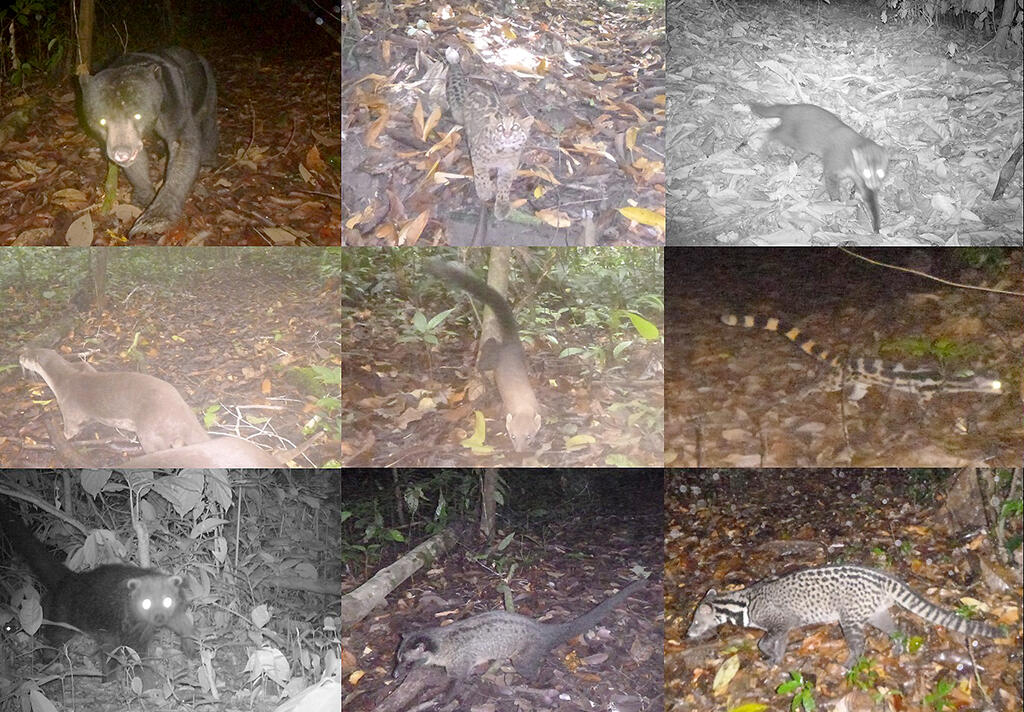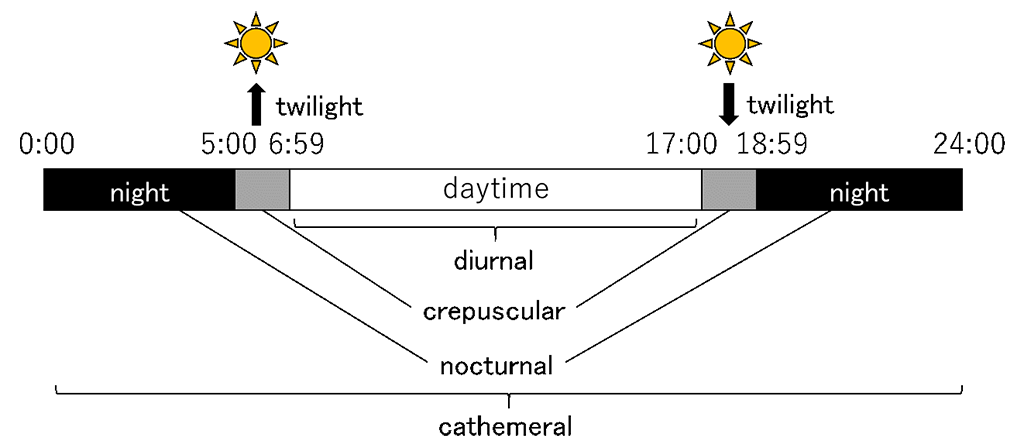Ecotourism may be adversely affecting the activities of wildlife in Borneo. A research group led by Miyabi Nakabayashi of the Hiroshima University Graduate School of Advanced Science and Engineering revealed this finding and their work was published in Scientific Reports.
The research group monitored the activity time zone with an automatic camera to clarify the basic ecological information and coexistence mechanism of carnivorous animals on the island of Borneo. Of the 37,379 animal photographs taken at the Danum Valley Conservation Area, Lower Kinabatangan Wildlife Sanctuary, and Tabin Wildlife Reserve between 2010 and 2016, 1261 photographs contained images of a total of 17 species of carnivorous animal.

Credit: Hiroshima University
Analysis of data on nine species revealed that six species were nocturnal (3 Viverridae, 1 Felidae, 1 Prionodontidae, and 1 Mephitidae), 2 were diurnal (1 Felidae and 1 Mustelidae), and 1 (Ursidae) was cathemeral (irregular activity patterns). The degree of overlap of activity time zones was large among the six nocturnal species, and it became clear that they were all active in approximately the same time zone. It was suggested that the two species belonging to Felidae are segregated by time; however, it was found that the three Viverridae species used the same space at approximately the same time, and there was no temporal segregation among closely related species. Because the three Viverridae species are highly omnivorous, it is thought that coexistence is likely through using different foods.

Credit: Hiroshima University
During the research period, ecotourism was conducted for observing wild animals and plants at all three research sites; however, at one site, the influence of tourism activities (nighttime animal exploration using powerful spotlights) directly affected the location where the camera was installed. At that site, one nocturnal species tended to suppress activity during the particular time of ecotourism activity. Even within the nature reserve, it seems necessary to conduct monitoring with an automatic camera in places where ecotourism is being organized.
This article has been translated by JST with permission from The Science News Ltd.(https://sci-news.co.jp/). Unauthorized reproduction of the article and photographs is prohibited.




